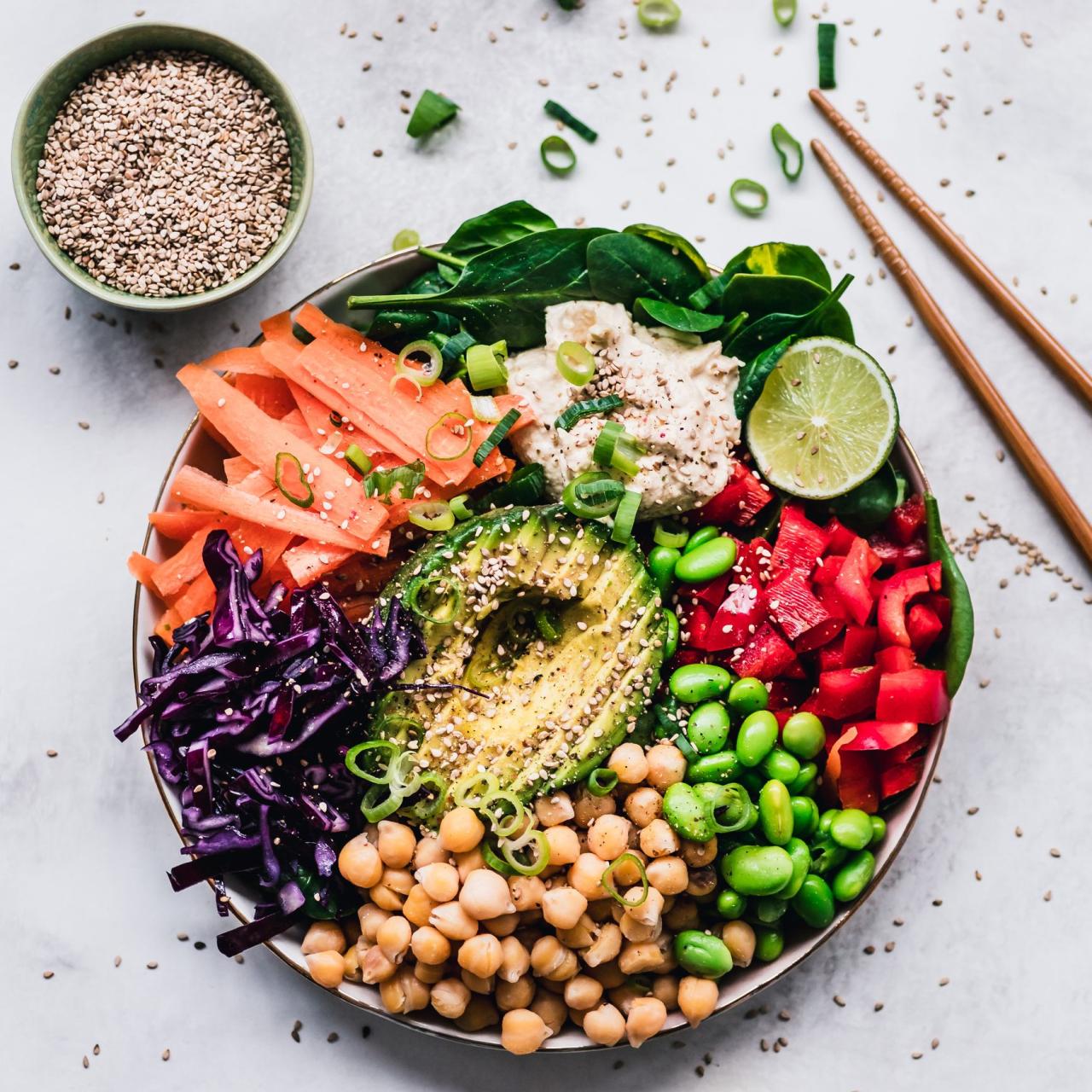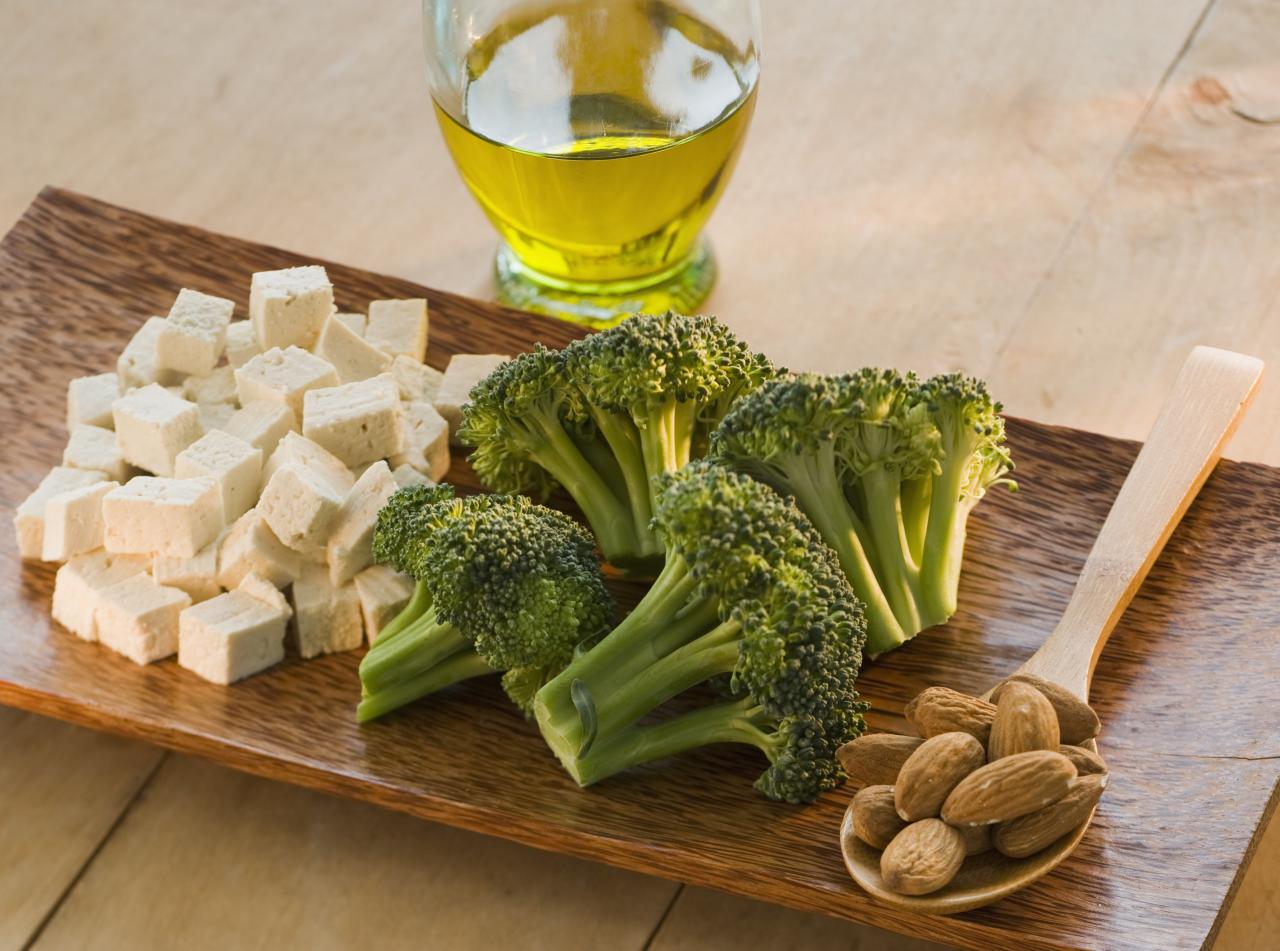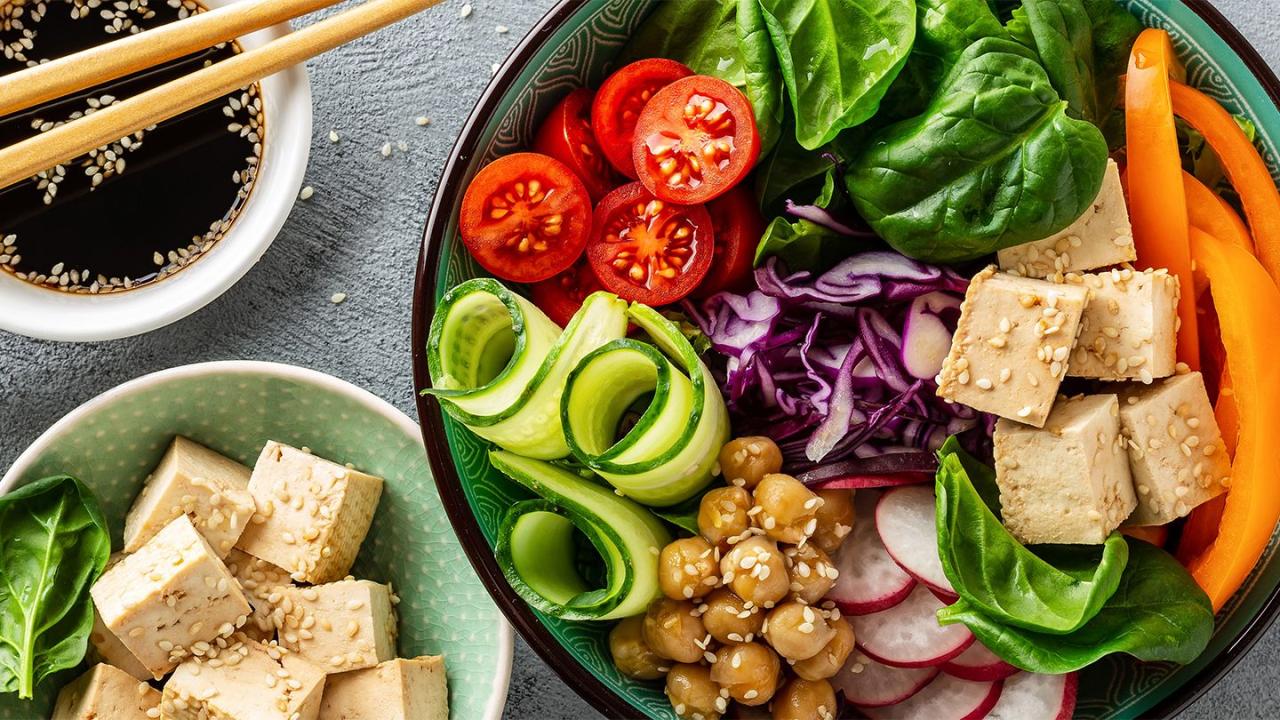Embarking on a vegan diet can be an exciting journey into the realm of plant-based nutrition. Understanding what to eat on a vegan diet is crucial for ensuring a balanced and fulfilling dietary experience. This comprehensive guide will delve into the essential nutrients, protein sources, meal planning strategies, and common misconceptions surrounding a vegan lifestyle, empowering you to make informed choices and reap the benefits of a plant-based diet.
From nutrient-rich fruits and vegetables to protein-packed legumes and whole grains, the vegan diet offers a diverse array of culinary delights. By embracing the principles of variety and inclusivity, you can create flavorful and satisfying meals that meet your nutritional needs and tantalize your taste buds.
Plant-Based Protein Sources

Embracing a vegan lifestyle necessitates a conscious approach to protein intake. Fortunately, the plant kingdom offers an array of nutrient-rich sources that can fulfill your daily protein requirements.
For those who seek a healthier lifestyle, adopting a pescetarian diet can be a great option. It offers the benefits of a plant-based diet while still allowing for the consumption of fish and seafood. Discover a collection of healthy pescetarian recipes that will tantalize your taste buds and nourish your body.
Plant-based proteins are not only abundant in amino acids but also provide an array of essential vitamins, minerals, and fiber. These sources are typically low in saturated fat and cholesterol, making them a heart-healthy choice.
Legumes
- Legumes, such as beans, lentils, and peas, are an excellent source of protein, fiber, and iron.
- One cup of cooked lentils provides approximately 18 grams of protein.
- They are versatile and can be incorporated into soups, salads, and main dishes.
Tofu and Tempeh
- Tofu and tempeh are processed soy products that are rich in protein and calcium.
- Half a cup of tofu provides around 10 grams of protein.
- They have a mild flavor and can be marinated or seasoned to enhance their taste.
Nuts and Seeds
- Nuts and seeds are nutrient-dense sources of protein, healthy fats, and fiber.
- One ounce of almonds provides approximately 6 grams of protein.
- They can be enjoyed as snacks, added to salads, or used in baking.
Whole Grains
- Whole grains, such as quinoa, brown rice, and oats, contain a moderate amount of protein along with fiber and complex carbohydrates.
- One cup of cooked quinoa provides about 8 grams of protein.
- They are a versatile base for meals and can be combined with legumes or vegetables for a complete protein profile.
Essential Nutrients for a Vegan Diet

A vegan diet, devoid of animal products, necessitates meticulous attention to nutrient intake to ensure optimal health. This comprehensive guide explores the essential nutrients required for a healthy vegan diet, their sources in plant-based foods, and specific examples of nutrient-rich vegan options.
Protein
Protein, the building block of cells, is crucial for growth, repair, and enzyme production. Plant-based sources of protein include:
- Legumes (beans, lentils, chickpeas)
- Soy products (tofu, tempeh, edamame)
- Nuts and seeds
- Whole grains (quinoa, brown rice)
Iron
Iron, essential for oxygen transport, can be obtained from plant-based sources such as:
- Leafy green vegetables (spinach, kale)
- Legumes
- Fortified cereals
- Dried fruits (raisins, apricots)
Calcium
Calcium, vital for bone health, is found in plant-based foods like:
- Fortified plant-based milk (almond milk, soy milk)
- Leafy green vegetables
- Tofu
- Broccoli
Vitamin B12
Vitamin B12, crucial for nerve function, is not naturally present in plant foods. Vegans must obtain it from:
- Fortified foods (plant-based milk, cereals)
- Nutritional yeast
- Supplements
Omega-3 Fatty Acids
Omega-3 fatty acids, beneficial for heart and brain health, can be obtained from plant sources such as:
- Flaxseeds
- Chia seeds
- Walnuts
- Algae oil
Meal Planning for a Vegan Diet

Creating balanced and nutritious vegan meals requires careful planning. Here’s a guide to help you structure your meals and ensure you’re meeting your nutritional needs.
Consider incorporating a variety of plant-based foods from all food groups to ensure you’re getting a wide range of nutrients. This includes fruits, vegetables, whole grains, legumes, nuts, and seeds.
Sample Meal Plan
Here’s a sample meal plan to give you an idea of how to structure your vegan meals:
- Breakfast:Oatmeal with berries and nuts
- Lunch:Salad with grilled tofu, quinoa, and vegetables
- Dinner:Lentil soup with whole-wheat bread
- Snacks:Fruit, vegetables, nuts, or seeds
Meal Prepping and Planning
Meal prepping and planning can save you time and ensure you have healthy vegan meals on hand. Here are some tips:
- Plan your meals in advance:This will help you avoid impulse purchases and make sure you have all the ingredients you need.
- Cook in bulk:This is a great way to save time and have leftovers for the week.
- Freeze leftovers:This is a great way to have healthy meals on hand when you’re short on time.
Variety and Inclusivity in a Vegan Diet
A vegan diet is not just about abstaining from animal products. It’s about embracing the incredible variety and inclusivity of plant-based foods. From leafy greens to vibrant fruits, whole grains to legumes, and nuts to seeds, the vegan world is a culinary adventure waiting to be explored.
The diversity of vegan cuisines reflects the richness of plant-based traditions worldwide. From the vibrant flavors of Indian curries to the hearty comfort of Ethiopian stews, the aromatic spices of Thai dishes to the fresh simplicity of Mediterranean salads, there’s a vegan recipe for every palate.
Examples of Vegan Cuisines and Recipes, What to eat on a vegan diet
- Indian:Chana masala (chickpea curry), palak paneer (spinach with tofu), vegetable biryani
- Ethiopian:Misir wot (red lentil stew), injera (flatbread), gomen (collard greens)
- Thai:Pad thai (stir-fried noodles with vegetables), green curry with tofu, mango sticky rice
- Mediterranean:Hummus, baba ghanoush, falafel, tabbouleh
Common Misconceptions and Concerns
Adopting a vegan diet often sparks questions and concerns. However, it’s crucial to address these misconceptions with evidence-based information.
For those seeking a balanced and sustainable diet, healthy pescetarian recipes offer a wealth of options. Whether you’re looking for a light and refreshing lunch or a hearty and satisfying dinner, these recipes are packed with nutrients and flavor.
One common concern is that a vegan diet lacks essential nutrients. However, a well-planned vegan diet provides all the necessary nutrients for optimal health. Plant-based foods are rich in vitamins, minerals, fiber, and antioxidants. Studies have shown that vegans have similar or even higher levels of essential nutrients compared to meat-eaters.
Protein Intake
Another misconception is that vegans struggle to consume adequate protein. Plant-based protein sources such as beans, lentils, tofu, tempeh, and nuts provide ample amounts of protein. A combination of these foods throughout the day ensures the body receives all essential amino acids.
Health Benefits
Vegan diets have been associated with numerous health benefits. Research suggests that vegans have lower risks of chronic diseases such as heart disease, type 2 diabetes, and certain types of cancer. The high fiber content in plant-based foods promotes digestive health and satiety, while the antioxidants protect against oxidative stress and inflammation.
Environmental Impact
Beyond its health benefits, a vegan diet also has significant environmental advantages. Animal agriculture is a major contributor to greenhouse gas emissions, deforestation, and water pollution. By choosing plant-based foods, vegans reduce their carbon footprint and support sustainable practices.
Last Word
Adopting a vegan diet not only nourishes your body but also aligns with ethical and environmental values. By choosing plant-based foods, you contribute to a more sustainable and compassionate world. As you explore the vast culinary landscape of veganism, you’ll discover a wealth of delicious and nutritious options that will redefine your relationship with food and empower you to live a healthier, more vibrant life.
Helpful Answers: What To Eat On A Vegan Diet
What are the best sources of protein on a vegan diet?
Legumes (beans, lentils, chickpeas), tofu, tempeh, nuts, seeds, and whole grains are excellent sources of plant-based protein.
Can vegans get enough vitamin B12?
Vitamin B12 is primarily found in animal products, so vegans need to consume fortified foods or supplements to ensure adequate intake.
Is it possible to eat a vegan diet on a budget?
Yes, a vegan diet can be affordable by focusing on whole, unprocessed plant foods such as fruits, vegetables, legumes, and grains.